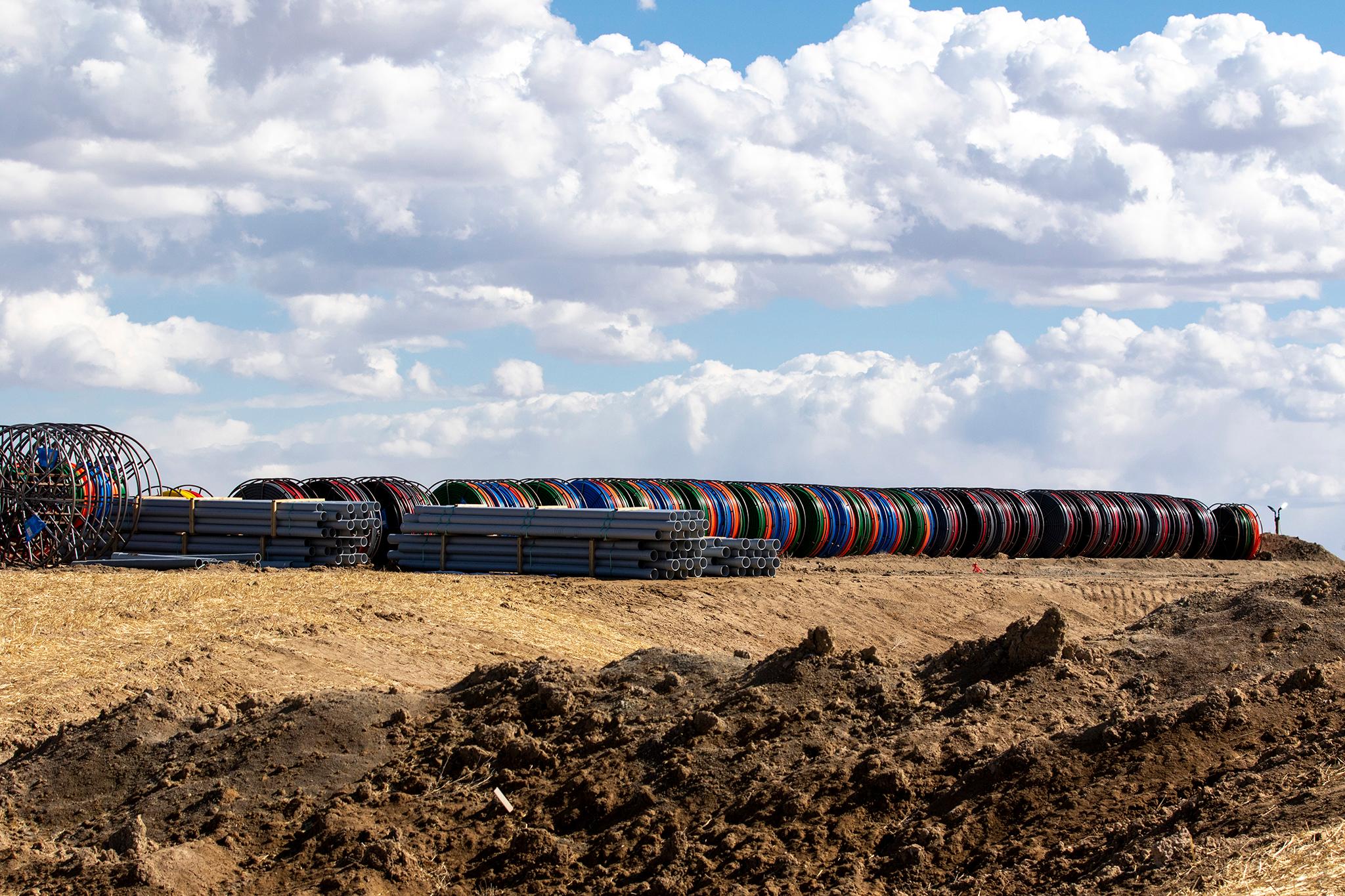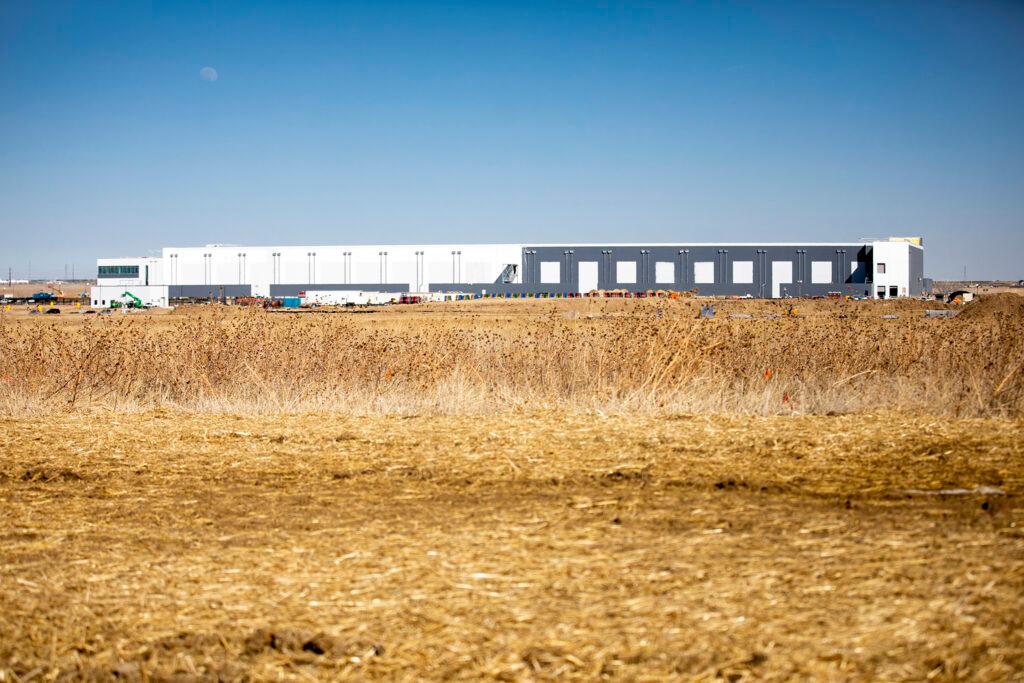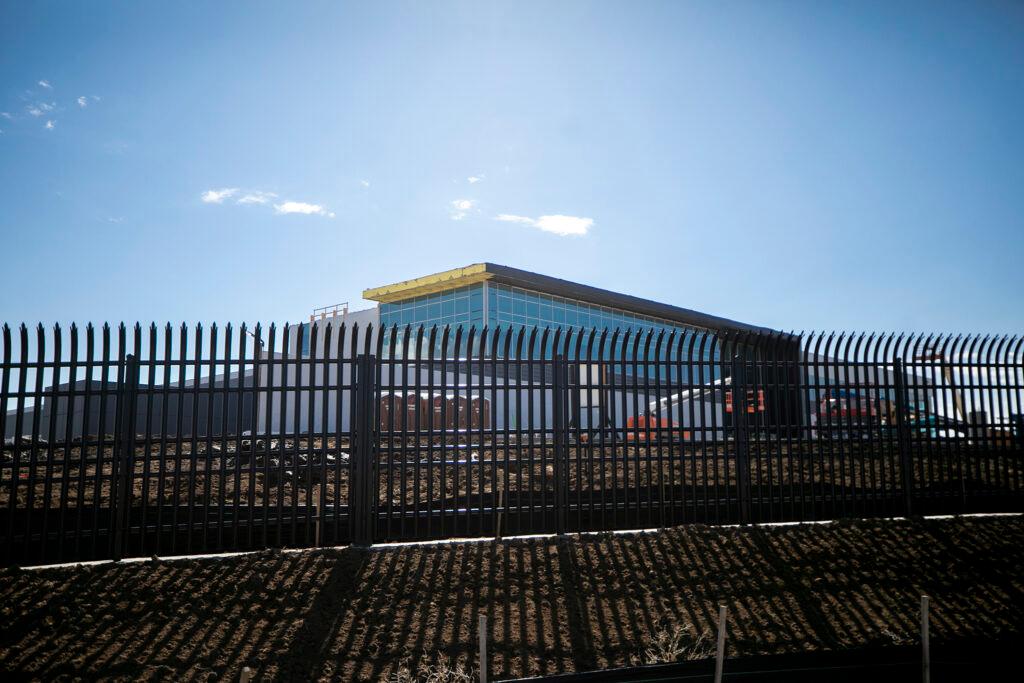
Today’s internet increasingly depends on massive data centers like the one currently under construction in eastern Aurora.
QTS Realty Trust, a Kansas-based company with data center operations in North America and Europe, owns the 67-acre property near Interstate 70 and C-470. Once completed, the compound of featureless boxes will offer clients computing power backed by 177 megawatts of peak electrical capacity, making it one of Xcel Energy’s largest industrial customers, according to filings with state utility regulators.
A new bill being considered by state lawmakers is designed to lure similar operations to Colorado. If approved, it would waive state sales and use taxes for up to three data center projects each year between 2026 and 2034. State Sen. Kevin Priola, D-Henderson, said he’s sponsoring the proposal to give local communities a new source of property tax revenue to replace funding from coal plants and other fossil fuel infrastructure the state is phasing out.
“Artificial intelligence is growing exponentially,” Priola said. “Once these data centers are built, the taxes will provide a stable source of education funding going forward.”
The proposal, however, faces skepticism from critics worried the facilities will devour precious water resources to stay cool and push the state’s climate goals further out of reach. Consumer advocates further fear the legislation could drive household energy costs up as utilities rush to build new infrastructure to feed power to new data centers.
There’s now time for the debate to play out during the current legislative session. Originally scheduled for an initial committee vote in late February, Priola says the legislation was put on hold while supporters crafted amendments to address fiscal and environmental concerns.

Data center development has mostly skipped Colorado
Companies worldwide have invested in new data centers to keep up with the growth in online activity. That includes everything from storing photos and streaming movies to more recent innovations like cryptocurrency mining and artificial intelligence.
Those ballooning server farms require a staggering amount of energy. In addition to electricity to power computer processing, air conditioning is necessary to reduce the risk of overheating. A recent report from the International Energy Association found the facilities consumed 2 percent of global electricity in 2022. It further projected the total demand could more than double by 2026, potentially adding the power consumption equivalent of a country like Germany.
A large portion of the growth is set to occur in the United States. The country already hosts a third of the world’s data centers, and the report estimates that by 2026 those facilities could account for roughly 6 percent of the country's power use.
Evaporative cooling systems can help cut energy use but consume a massive amount of water. In the U.S., researchers say a typical data center uses three to five million gallons of water per day, roughly equal to the water consumption of a city of 30,000 to 50,000 people.
Those operations are currently clustered in major markets like Dallas and northern Virginia, said Greg Vernon, a senior vice president focused on data centers at the real estate service firm CBRE. Colorado has seen far less investment, but that could change as the industry looks for other markets capable of adding new capacity.
Vernon said Colorado also has a cooler climate, a relative lack of natural disasters, plenty of land, an educated workforce and competitive electricity prices. What it lacks, however, is a state tax benefit. Unlike 32 other states, Colorado doesn’t offer data center builders a direct subsidy to lure in new projects.
“Denver checks the boxes other than the incentives,” Vernon said.
While developers like QTS have proposed plans for major data center projectors, metro Denver remains far behind other comparable markets. Recent estimates from Vernon’s firm found that Salt Lake City, for example, has enough data centers to use 444 MW of electricity, nearly quadruple the 92 MW of operations in metro Denver.

Critics would rather keep data centers away
In the early debate over the data center incentive legislation, one key player has aligned behind the incentive plan: Xcel Energy.
Lobbying records show Colorado’s largest utility was one of the first groups to declare its support for the bill. It’s since been joined by other power companies and many of the state’s largest business groups, including the Colorado Chamber of Commerce and the Metro Denver Chamber of Commerce.
Michelle Aguayo, an Xcel Energy spokesperson, said the benefits could extend beyond jobs and economic development. Data centers would also provide a new source of revenue to help the company maintain and update the electricity grid. The facilities could also be optimized to use power when households and other businesses don’t need it, helping increase the system's overall efficiency and cut customer costs, Aguayo said.
Critics, however, fear new data centers could further increase energy bills.
John Gavan, a former Colorado Public Utilities Commissioner and information technology specialist, said data centers use so much electricity, utilities could be forced to build new power plants, transmission and distribution systems. While data center developers could cover some of those costs, he expects households would end up picking up part of the tab through extra charges on their monthly energy bills.
“Colorado ratepayers are already under enormous stress, so I just think this is really bad policy,” Gavan said.
Gavan and environmental groups also fear a flood of new data centers could push Colorado’s climate targets even further out of reach.
State lobbying records show Conservation Colorado and Western Resource Advocates — two of the state’s top environmental groups — oppose the bill due to water and energy use concerns. The Colorado Fiscal Institute, a left-leaning think tank, is also against the plan, noting the state is already attracting the data center industry without tax incentives. “It does not need help from our limited funds,” Caroline Nutter, the center’s legislative coordinator told CPR News.
Recent updates show the state is off track to meet a statutory goal to halve its greenhouse gas emissions by 2030 due to stubborn pollution from cars and trucks. Colorado’s electricity sector, on the other hand, is set to reach climate benchmarks due to commitments to rapidly expand renewable energy development and close all coal-fired power plants by 2031.
Meanwhile, Priola, the legislative sponsor and a vocal climate hawk, said Colorado could help data center companies clean up their operations. If developers can be lured into the state, it ensures a larger portion of internet activity can rely on Colorado’s growing supplies of wind and solar power.
“They could easily locate them in Cheyenne, Wyoming — and their power grid is not nearly as clean as ours is,” Priola said.








